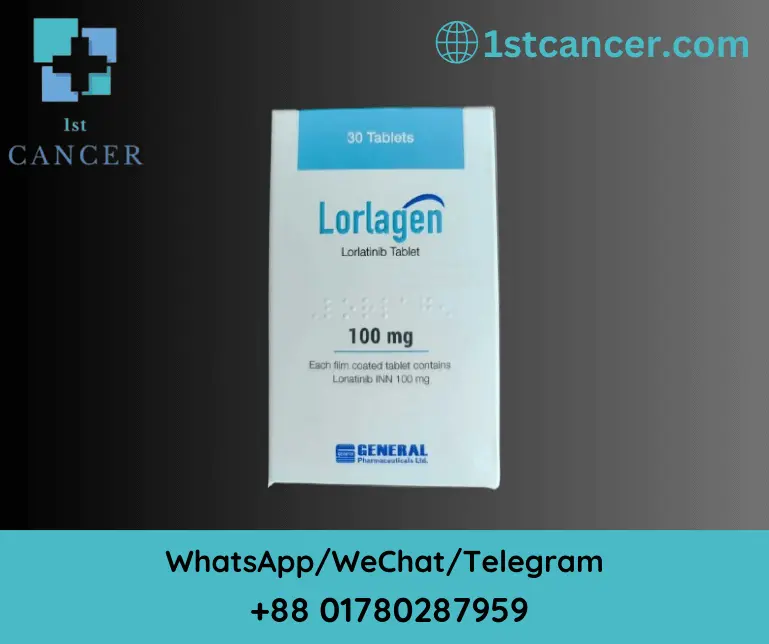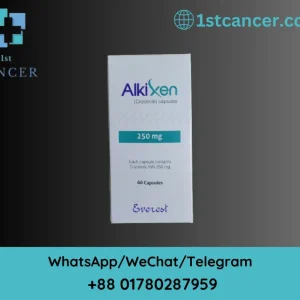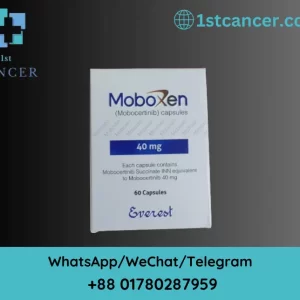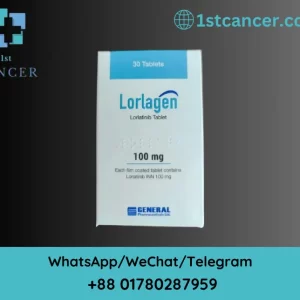Lorlatinib: Advanced ALK Inhibitor for Metastatic Non‑Small Cell Lung Cancer
Lorlatinib (marketed as Lorbrena in the United States, Canada, and Japan, and Lorviqua in the European Union) is a breakthrough oral anti‑cancer therapy developed by Pfizer. It specifically targets non‑small cell lung cancer (NSCLC) by inhibiting key enzymes—anaplastic lymphoma kinase (ALK) and C‑ros oncogene 1 (ROS1)—that drive cancer development.
Key Medical Benefits
- Targeted Treatment: Indicated for adults with metastatic NSCLC that is ALK‑positive.
- Proven Efficacy: Effective in patients with tumors that have progressed after previous ALK inhibitor therapies.
- Oral Administration: Provides a convenient, once‑daily dosing regimen, offering ease of use for patients.
Common Adverse Reactions
Patients using Lorlatinib may experience side effects, including:
- Edema (swelling)
- Peripheral Neuropathy (nerve damage)
- Weight Gain
- Cognitive Effects (memory and concentration issues)
- Fatigue and Dyspnea (shortness of breath)
- Arthralgia (joint pain)
- Diarrhea
- Mood Changes
- Hypercholesterolemia (high blood cholesterol)
- Hypertriglyceridemia (high blood triglycerides)
- Cough
In clinical studies, serious adverse events led to dose reduction in 23% of patients and treatment discontinuation in 3%.
Contraindications & Drug Interactions
- Contraindications: Lorlatinib should not be combined with strong inducers of the liver enzymes CYP3A4/5 (such as rifampicin) due to an increased risk of liver toxicity.
- Drug Interactions:
- Enzyme Inducers: Medications like rifampicin, carbamazepine, or St John’s wort can lower Lorlatinib plasma levels, reducing its effectiveness.
- Enzyme Inhibitors: Agents such as ketoconazole or grapefruit juice may increase Lorlatinib levels, potentially leading to higher toxicity.
- Additionally, Lorlatinib can moderately induce CYP3A4/5, affecting the metabolism of other drugs (e.g., midazolam and ciclosporin).
Pharmacology & Mechanism of Action
- Mechanism: Lorlatinib is a small‑molecule kinase inhibitor that blocks ALK, ROS1, and several other related kinases. This action disrupts cancer signaling pathways and is effective against many mutated forms of ALK.
- Pharmacokinetics:
- Absorption: Taken orally, Lorlatinib reaches peak plasma concentration in approximately 1.2 to 2 hours.
- Bioavailability: Absolute bioavailability is approximately 80.8%, with a slight increase (about 5%) when taken with fatty food.
- Protein Binding: Around 66% of the drug is bound to plasma proteins.
- Metabolism: Primarily inactivated through oxidation (via CYP3A4) and glucuronidation (via UGT1A4).
- Half-Life: The terminal half-life is about 23.6 hours, with excretion occurring via both urine (47.7%) and feces (40.9%).
- Additional Benefit: Lorlatinib can cross the blood–brain barrier, making it a valuable option for patients with central nervous system involvement.
Chemical Profile
- Formulation: Lorlatinib is formulated as a white to off‑white powder, offering high solubility in 0.1 M hydrochloric acid and low solubility at pH levels above 4.5.
Clinical History & Regulatory Approvals
- Initial Approval: Lorlatinib received accelerated approval from the U.S. Food and Drug Administration (FDA) in November 2018 for ALK‑positive metastatic NSCLC in patients who have progressed on crizotinib and at least one other ALK inhibitor, or as first‑line therapy following progression on alectinib or ceritinib.
- Expanded Approval: In March 2021, the FDA granted regular approval based on robust clinical trial data comparing Lorlatinib with crizotinib in treatment‑naïve metastatic NSCLC patients.
- Global Recognition: Approved for medical use in the European Union in May 2019, Lorlatinib’s strategic development has earned it orphan drug status for both ALK‑positive and ROS1‑positive NSCLC.
Society, Culture & Legal Status
- Orphan Drug Status: In 2015, Lorlatinib was granted orphan drug status by the FDA, underscoring its importance as a targeted therapy for rare, specific cancer subtypes.
- Market Presence: With approvals in both the United States and European Union, Lorlatinib is widely recognized as a vital option for advanced NSCLC treatment worldwide.





